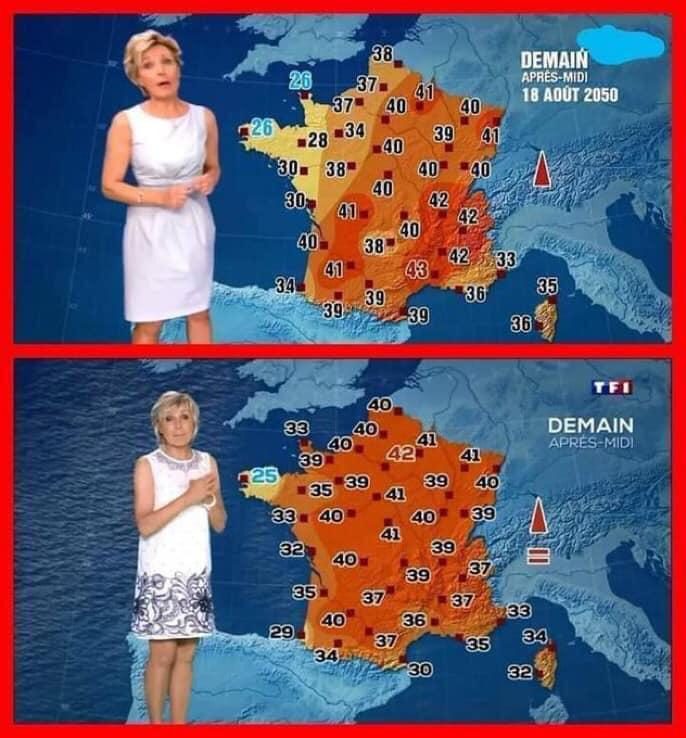A 2014 climate change documentary imagined a weather report in 2050. Those temperatures are already being exceeded
Cities across northern Europe have seen record-breaking heatwaves in recent weeks
In 2014, a French television channel broadcast fictional weather reports envisioning temperatures in 2050.
Intended as a distant warning about the escalating threat of climate change, one clip featured high profile weather forecaster Evelyne Dheliat alongside a map showing summertime temperatures in France hitting highs of up to 42C.
But just five years later, real weather forecasts by Ms Dheliat show the future appears to have arrived decades early.
An image shared widely on social media following last week’s European heatwave shows a striking similarity between the fictional temperatures of August 2050 and the very real weather faced today.
Although the 2019 image was apparently taken from a weather report in late June, when France recorded its first ever 46C high, last week saw similar scorching temperatures, including in Paris, which saw its hottest day on 25 July.

In the fictional 2014 report, Paris is shown at 26C in the morning, before rising to 40C after midday. Last Thursday, the French capital hit a far more extreme 34C by 10am, before reaching its record 42.6C in the late afternoon.
The comparison between the present and 2014's dystopian weather report was first made by French weekly L’Obs.
The unprecedented heat in France last week was mirrored across much of northern Europe, where one by one temperature records tumbled.
Holland beat its national record that had stood since 1944 with a reading of 39.3C in Eindhoven, while a temperature of 40.7C in Beitem broke Belgium’s record.
Although no single weather event can be directly attributed to climate change, climate scientists warn global carbon emissions make extreme heatwaves far more likely.
A study last month by the Potsdam Institute for Climate Impact Research revealed the five hottest summers in Europe since 1500 have come since 2002.
Join our commenting forum
Join thought-provoking conversations, follow other Independent readers and see their replies
Comments
Bookmark popover
Removed from bookmarks